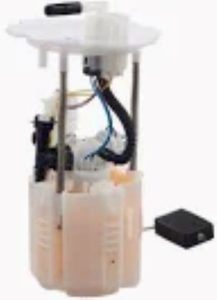Fuel Pump maintenance is very necessary to enhance the car's reliability, fuel efficiency, and prevent expensive repairs later on. A well-maintained Fuel Pump guarantees constant fuel pressure, which is what most engines need to run optimally. If not regularly serviced, this may fall below the recommended standard engine specifications of 30 to 60 psi and cause problems like stalling of cars, delays in acceleration, and poor fuel economy. Studies have proved that a well-maintained Fuel Pump and other accessories result in an overall 10% improvement in fuel economy, saving drivers money in the long run.
Regular maintenance will also avoid overheating-the main reason for premature failure of Fuel Pump. The pump is usually cooled and lubricated by fuel; running it with low levels of fuel increases the temperature while accelerating wear. Operating on less than a quarter tank of fuel on a regular basis can cut the life of the pump as much as 30%, since the increased heat from the pump will already damage internal components. The regular checkup of the level of fuel and topping off the tank reduces this risk, increasing the life of the pump, while keeping your engine running smoothly.
Other critical areas of Fuel Pump maintenance include replacing the fuel filter every 20,000 to 30,000 miles. When the filter becomes clogged, fuel flow becomes restricted, causing the pump to work harder and increasing wear on the pump. This can result in a 15% drop in efficiency, overheating, and early failure of the pump. According to experts, it is wise to replace filters in order to support the longevity of pumps and sustain continuous fuel delivery.

Maintenance of the electrical connections of the Fuel Pump is equally important since voltage fluctuation can damage the performance of the pump. The pump needs consistent 12-volt power supply; corroded or loose connections disturb the power supply, resulting in variable fuel delivery. Regular checks on the pump's wiring and connectors ensure stable voltage which sustains efficient operation and prolongs service life.
As one would expect, regular maintenance to the Fuel Pump becomes even more critical for owners whose vehicles have high performance or are otherwise modified. Many high-performance pumps support a flow rate of over 250 liters per hour and bear increased stress on the pump; thus, special care must be taken to prevent failure. If the maintenance of such high-output pumps is ignored, then one should expect misfires, fuel starvation, and eventually engine damage accompanied by poor fuel economy.
Proper maintenance of the fuel pump will go a long way in ascertaining the health of the engine, good fuel economy, and durability of the vehicle-a necessity for all car owners. By preventive maintenance, drivers can avoid breakdowns; maintain constant performance and save money in terms of repair costs in the long run.